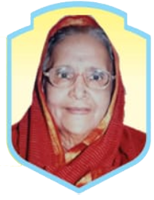Any questions? Call us 07268-226623
9860974148
Login | smtsindhutaijadhao@gmail.com
Dharmveer Diliprao Rahate Shikshan Va Bahuuddeshiya Sanstha, Mehkar's
Smt. Sindhutai Jadhao Arts and Science Mahavidyalaya, Mehkar, Dist. Buldhana
(Formerly known as Arts and Science Mahila Mahavidyalaya, Mehkar, Dist. Buldhana)
Affiliated to Sant Gadge Baba Amravati University, Amravati, Maharashtra
(Re-accredited by NAAC in 2023 and Awarded Grade B+ with CGPA 2.68)
Department of Computer Science
- About the Department of Computer Science
- program
- Student Strength
- Result Dropout
- Activity- Co-curricular, sport
- Study Circle
About the Department of Computer Science:
The department of Computer Science has established in the year 2011. With the beginning of the faculty of science. The most important aspect of computer science is problem solving, an essential skill for life. Students study the design, development and analysis of Software and Hardware used to solve problems in a variety of business, scientific and social contexts. Because computers solve problems to serve people, there is a significant human side to computer science as well.
Vision:
To create the most conducive environment for quality academic and research oriented undergraduate education in computer science and prepare the students for a globalized technological society and orient them towards serving the society.
Mission:
Our mission is to prepare students for careers as software professionals and for advanced studies in Computer Science. We develop & work with a range of technologies to build systems and applications that help solve todays problem, and share skill and knowledge with the community.
Objective:
Students will be able to design, develop, document, and test software using the current techniques.
Students will understand the fundamentals of computer architecture and computing theory.
Students will be able to solve problems working in group settings.
Students demonstrate the ability to give presentation and write technical report.
Students will demonstrate understanding of the importance of social and ethical issue related to the professional.
Program:
UG-B.Sc. Computer Science
Student strength:
|
Class |
2019-2020 |
2020-2021 |
2021-2022 |
|
B.Sc.-I |
29 |
20 |
12 |
|
B.Sc.-II |
30 |
30 |
15 |
|
B.Sc.-III |
23 |
32 |
33 |
|
Total |
82 |
82 |
60 |
Result Dropout:
|
Semester/ Year |
2019-2020 |
2020- 2021 |
|
B.Sc. semester I |
10% |
95% |
|
B.Sc. semester II |
100% |
100% |
|
B.Sc. semester III |
64.29% |
100% |
|
B.Sc. semester IV |
90% |
100% |
|
B.Sc. semester V |
43.45% |
96.88% |
|
B.Sc. semester VI |
100% |
93.94% |
Activities:
Co-curricular activities for students like Seminar Competition, Poster Presentation Competition, “College level Science Quiz Competition, Remedial coaching for slow learners etc
Sport (2019-20)
|
Sr. No |
Students Name |
Game Name |
|
1 |
Vishal Ganesh Ingle |
Kabaddi |
|
2 |
Sudarshan Vishnu Jaunjal |
Kabaddi |
|
3 |
Vishal Ganesh Ingle |
Holly Ball |
|
4 |
Sudarshan Vishnu Jaunjal |
Holly Ball |
Department of Computer Science Study Circle:
|
President |
Sudarshan Vishnu Jaunjal (BSC III) |
|
Vice President |
Komal Sanjay Sarkate (BSC III) |
|
Secretary |
Shital Vijay Davhale (BSC II) |
|
Member |
Vaishnavi Datta Bachate (BSC II) |
|
Member |
Sakshi Ramesh Chukewar (BSC I) |
Departments
- Department of MARATHI
- The Department of ENGLISH
- Department of ECONOMICS
- Department of COMPUTER SCIENCE
- Department of HISTORY
- Department of POLITICAL SCIENCE
- Department of SOCIOLOGY
- Department of HOME ECONOMICS
- The Department of Botany
- The Department of Zoology
- Department of MICROBIOLOGY
- Department of CHEMISTRY
- Department of PHYSICS
- Department of MATHEMATICS
- Department of B. Voc.
- The Department of Environmental Studies
- PG MSC
® All Rights Reserved © Copyright 2025 Smt. Sindhutai Jadhao Arts & Science Mahavidyalaya, Mehkar.

